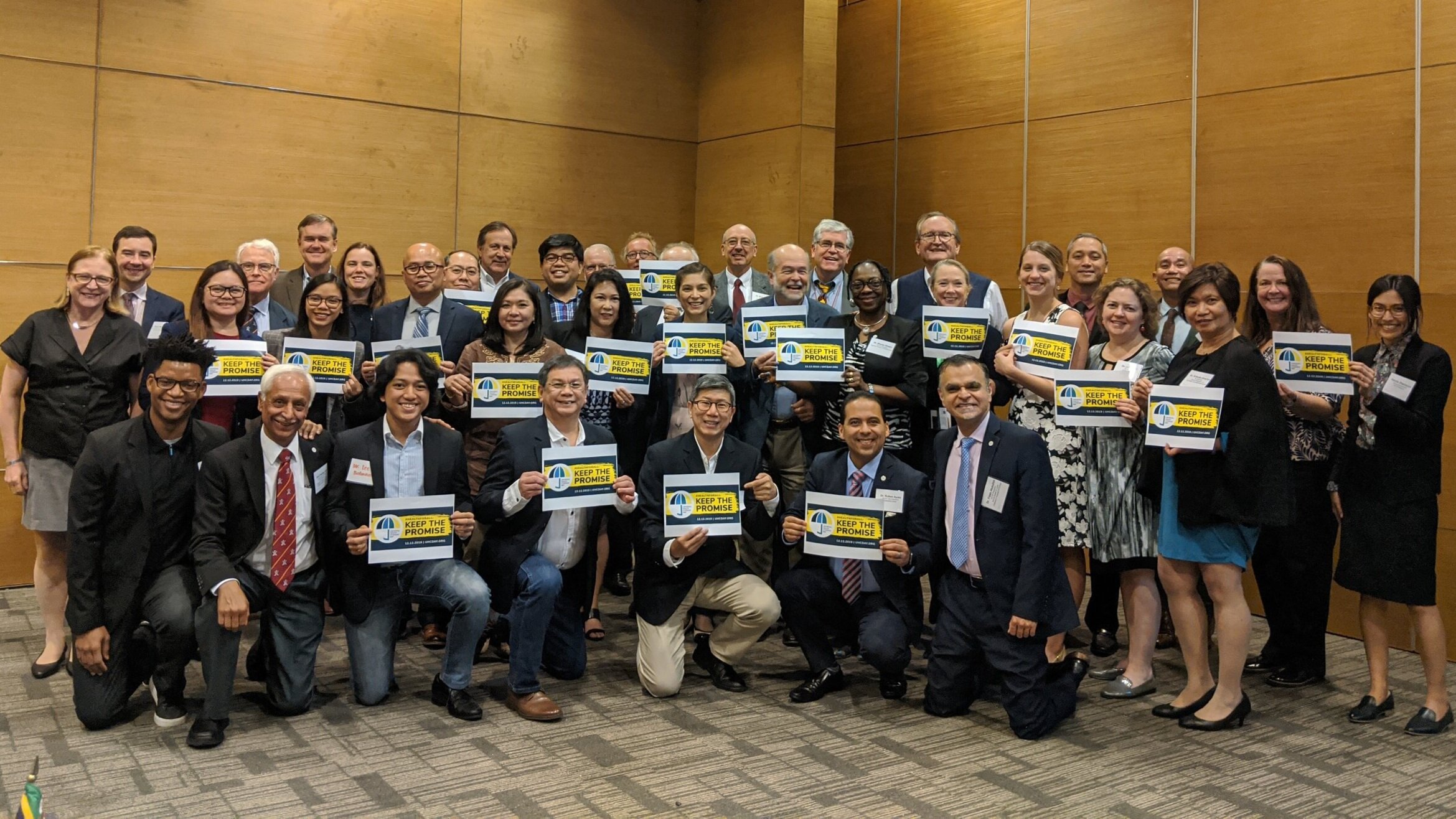Solidarity Bridge and the G4 Alliance in Manila
Written by Jodi Grahl
Across the globe, someone dies every two seconds because they can’t get the surgery they need to save their life. Sometimes the problem is a lack of workforce – medical schools would have to train an additional 53,000 neurosurgeons to meet the global need in just that one specialty. In other places, doctors don’t have the equipment, instruments or medications they need to operate. And many countries struggle to invest sufficiently in health; the Philippines budgets just $17 per person per year for healthcare.
An increasing number of organizations are attempting to identify and fill this critical gap in global healthcare. In 2015, a diverse group of university programs, medical associations, NGOs, and others from around the world formed a coalition to unite and amplify their voices around a common mission:
To advocate for the neglected surgical patient and to strive for increased access to quality, safe, timely, and affordable emergency and essential surgical, obstetric, trauma and anesthesia (SOTA) care as part of universal health coverage.
Shortly after it was launched, the founders of the Global Alliance for Surgical, Obstetric, Trauma and Anesthesia Care (a.k.a., the G4 Alliance), invited Solidarity Bridge to join. To date, the G4 Alliance has made important progress in raising awareness of the need for investment in surgery. Their advocacy was instrumental to passing World Health Association Resolution 68.15 which calls on member states to strengthen surgical and anesthesia care, with the goal of securing access to SOTA care for at least 80% of the world population by 2030.
The G4 Alliance also functions as a forum to share strategies and develop partnerships among its members. As an organization with more than 20 years experience working to increase access to surgery in Bolivia, I was honored to be invited to speak this week at the 2019 Permanent Council meeting in Manila, Philippines, on behalf of Solidarity Bridge. My presentation focused on our model of working with a strong local counterpart—Puente de Solidaridad, in our case. Working in an NGO to NGO partnership makes our efforts more sustainable, ensures continuity of support and care, and most importantly centers our mission on a response to needs addressed by the host country.
Dr. Richard Moser and Jodi Grahl represented Solidarity Bridge at the G4 Alliance meeting in Manila.
While in Manila, I also heard the stories of dozens of other G4 Alliance members. I am excited to take home ideas from doctors, nurses, and other lay people like myself from Africa, Europe, the U.S., and especially from the Asia Pacific region.
The 70+ members of the G4 Alliance face a surprising number of common challenges. But we also share a common conviction, which was summed up beautifully by a young surgery fellow from New Zealand. Dr. Hoani, a member of the Maori people of New Zealand, concluded his presentation with a simple but profound truth:
He aha te mea nui o te ao?.
He tangata, he tangata, he tangata
What is the most important?
The people, the people, the people
As outgoing G4 Council President Dr. Fizan Abdullah, pediatric surgeon from Lurie Children’s Hospital, noted in his concluding words: as a global platform with the ability to influence policies at multiple levels, we’re in a unique place to make a difference for patients. They are the most important. As long as there are people who need care, we will continue to explore every strategy to fill the need.


